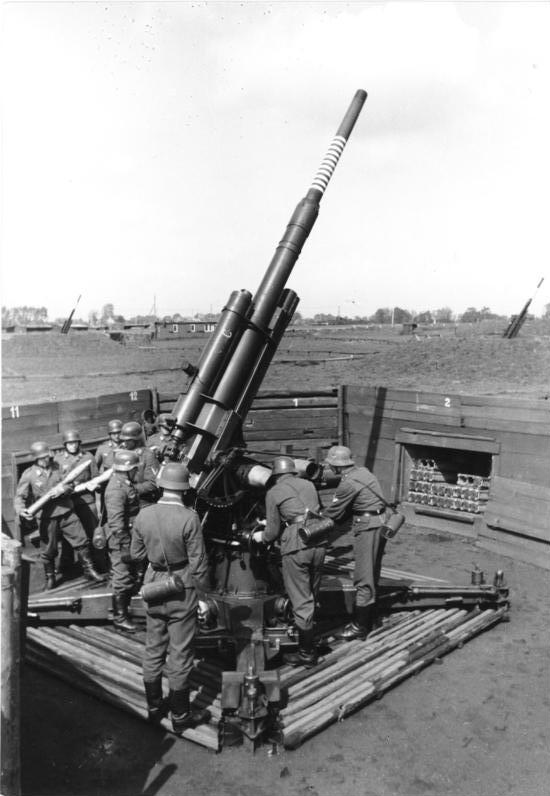The Curiosity of the German Word “Shitstorm” Posted by Sten on Jun 25, 2020 in Culture, Language
Today we’re looking at a a really fun German word: Der Shitstorm. I already hear you say “but that’s not a German word!” And you’d be right, of course. But hear me out, it gets funkier! But let me first tell you about the curious German word Shitstorm.
Merkel said this?!
Angela Merkel, the German Bundeskanzlerin, known for being reasonable, well-mannered and calm in any situation made the headlines when she used some “raw” language. In 2018, she used the word Shitstorm in an official capacity at a technology conference. She talked about how the internet is quite a new phenomenon for many, and that in the past, she even called it Neuland (uncharted territory). She then said: “Das hat mir einen großen Shitstorm eingebracht, deshalb will ich das nicht einfach wiederholen.” (It generated quite a shitstorm, so I don’t want to repeat it now.” Exceptional? No. It wasn’t the first time she used it.
In the captions, the New York Times translated that sentence as “it generated a shitstorm”. But I don’t think you’d use the word in English in an official capacity, would you?
You can hear a chuckle from the German audience in the clip above when she says Shitstorm. It is a relatively new word, mostly used casually (but not considered vulgar) and to hear somebody in such an official capacity use it is perhaps unexpected and causes that reaction. That’s not because it is a word she should not be using.
It’s even in the Duden?
The Duden actually has the term der Shitstorm as well. The German dictionary added it in 2013, and defines it as follows: “Sturm der Entrüstung in einem Kommunikationsmedium des Internets, der zum Teil mit beleidigenden Äußerungen einhergeht” (Storm of outrage in internet communication media, which sometimes involves insulting remarks). The Duden notes that its origin is in English, as a combination of the words shit and storm. Merriam-Webster has an entry for shitstorm, which is denoted as vulgar slang: a wildly chaotic and unmanageable situation, controversy, or sequence of events. To be fair, though, Germans would find a direct translation of Scheißesturm just as vulgar. So don’t do that!
So you can see that the English term is a bit broader in that it is not necessarily online. But these days, where do wildly chaotic and unmanageable situations happen mostly? Right. Online. And I am sure that Germans would not steer away from using the word in an offline situation.
The word originally comes from the 1948 World War II novel The Naked and the Dead by Norman Mailer. In it, American soldiers have the following exchange:
“Red spat. “I knew we been havin’ it soft too long. Two to one they send us out to catch a shit-storm tonight.”
Wilson nodded, shaking his head angrily. “When you have it good it don’ pay to bitch. All those replacements wantin’ to see combat, they’re gonna change they mind.””
Interesting, also how we now lost the Bindestrich (hyphen). But how did the Shitstorm find its way into the vocabulary of the German Bundeskanzlerin?
It is assumed that the term got traction in German with the Vortrag (lecture) by Sascha Lobo at the Berlin blogger conference re:publica in 2010, titled How to survive a shit storm. The whole thing is in German, and the word stuck.
The word won Anglizismus des Jahres (anglicism of the year) in 2011 in Germany, in Switzerland it even made Wort des Jahres (Word of the Year) in 2012.
There was an attempt to create a German word to mean the same thing: Netzhetze (net hunt), but it did not really catch on.
Shitstorm? I’d get a lot of flak for that!
In a way, Shitstorm is untranslatable. It simply isn’t a common term. Imagine a New York Times article, in which the word shitstorm was used. Just like that, unapologetically. He’d get a lot of flak for that! Wait a second… Catching flak seems to be a good translation of einen Shitstorm bekommen! You’re getting flak, meaning you get criticism. Cool. But guess WHERE flak comes from?
Actually, it originates in German vocabulary in the Erste Weltkrieg (First World War), believe it or not! Flak really is an Abkürzung for Flug(zeug)abwehrkanone (“flyer/aircraft defense canon”, or anti-aircraft gun). The word Flak was used in German to refer to these weapons and things associated with it. German might be known for having extremely long words, but that doesn’t mean we always like saying them. Instead of Flugzeugabwehrkanonenoffizier (anti-aircraft gun officer), it’s quicker, shorter, and understandable to call this person a Flakoffizier (flak officer). In German, Flak still just means that: an anti-aircraft, or AA gun.
The word only gained traction in the English language in World War II. Being the target of German AA guns, the English pilots would begin using the word Flak in applications like flak jackets, which meant to protect from pieces of the exploding grenades shot at your plane. At some point, flak turned up in a sort of wisdom for pilots: If you’re not catching flak, you’re not over the target.
So from borrowing words to adopting words, sometimes these things go full circle, like with this wonderful example.
Have you used the term Shitstorm before in your language? Do you have an equivalent for it in your language? Let me know in the comments below!

Build vocabulary, practice pronunciation, and more with Transparent Language Online. Available anytime, anywhere, on any device.





Comments:
doug chandler:
A contemporary application of “shitstorm”:
Trump is always creating a shitstorm.
Though being Canadian, his shitstorms have an adverse effect Canada.